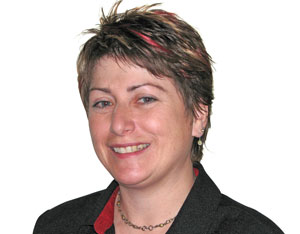
 Dr Daniela Rosentreich
Dr Daniela Rosentreich
PhD, Marketing
Dr Daniela Rosentreich recommends all PhD students ask themselves one fundamental question: “Are you there for the ride, or are you there for the qualification? If your priority is to have an expansive, academic experience you can approach your PhD very differently from if the aim is get the qualification quickly and efficiently.”
For Daniela, the goal was to achieve a PhD in three years. So every decision she made regarding how she would explore consumers' understandings of “quality” always had this target in mind.
“When students receive feedback, people tend to give advice about further things they could do: literature you could explore, alternative angles you could take. The critical decisions for me were not about what I could add, but what I should leave out.”
As a result, Daniela treated feedback from conferences as less about motivating changes to her thesis, and more about “plugging the gaps”, ensuring her research stood up more robustly to such lines of criticism.
Indeed, while Daniela acknowledges the professional benefits of conferences, she admits to “not really being much of a fan of them. It's such a short structure to express complex ideas.”
More helpful, she says, were the doctoral colloquia in the earlier days of the study. “The feedback can be great for gaining guidance in consolidating your actual research questions. However, in the later stages, it's a bit late to be rethinking your questions.”
If you are to make the most of the conference experience, Daniela advises students do their homework. “Find out who is going to be there that you wish to talk to, and then email them first asking whether they might have time to meet you for a coffee and talk about your research. It's much better than trying to sidle up to them in the midst of the conference itself.”
This recommendation is echoed in Daniela's approach to publishing. Rather than sending a manuscript in cold, she suggests writing a personal, journal-specific note to the editor, explaining what you're doing and why it's interesting, and asking whether it might be a good match for their edition.
“Every editor I have emailed has written back, with really positive suggestions. I've never heard of anyone getting a negative response from this approach.”
The difficulty for Daniela now, as a new lecturer, is finding time to publish at all. While Daniela sees benefits in moving to another university following one's PhD, she actually recommends beginner academics wait a few years. “It can be such a difficult transition to a full-time lecturing position anyway, without having the added stresses of learning new systems and having to develop new relationships. You really need all the support you can get.”
Daniela's thesis has been formally recognised by the Division of Commerce as being of exceptional quality.
